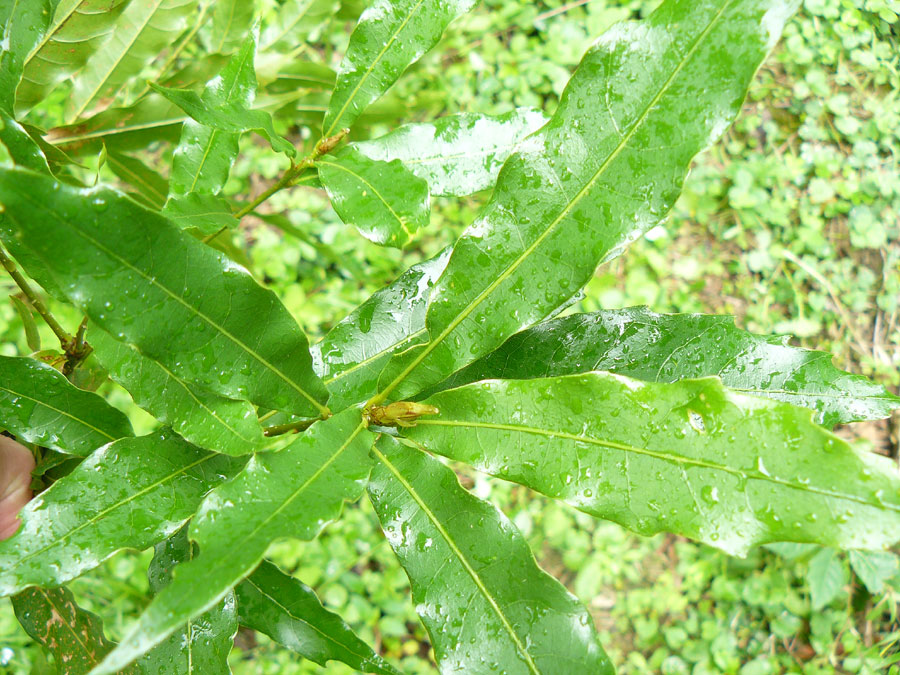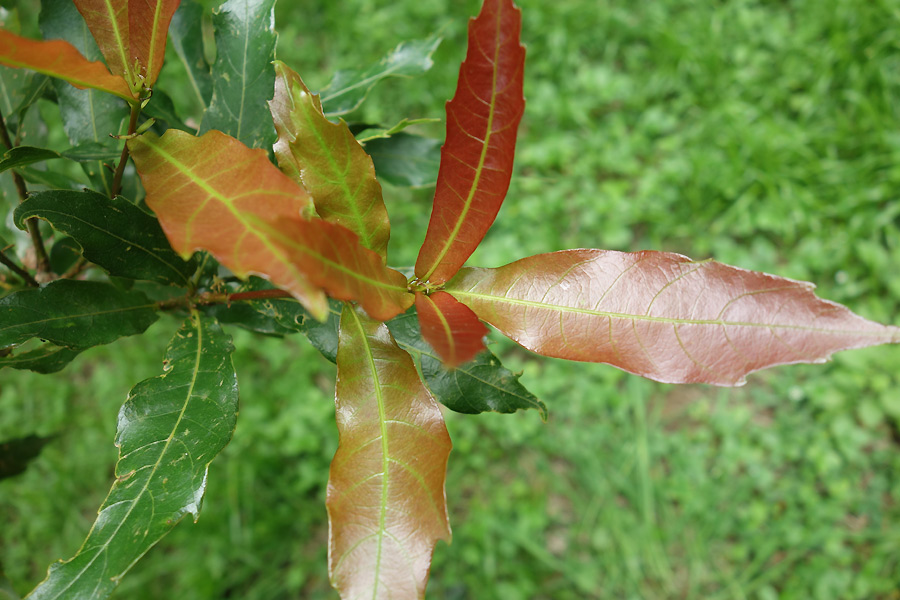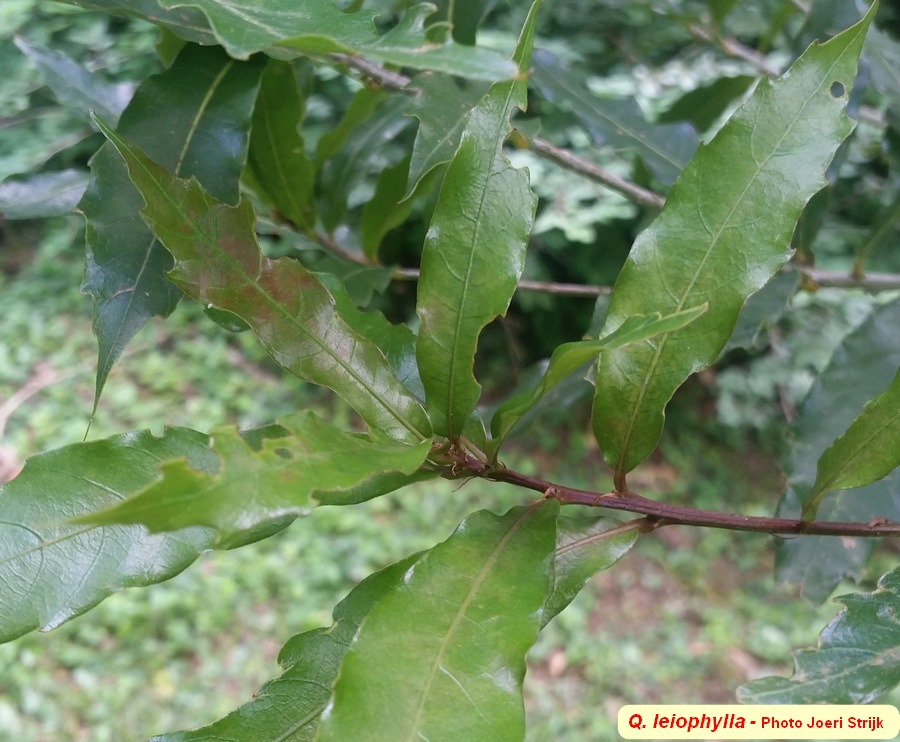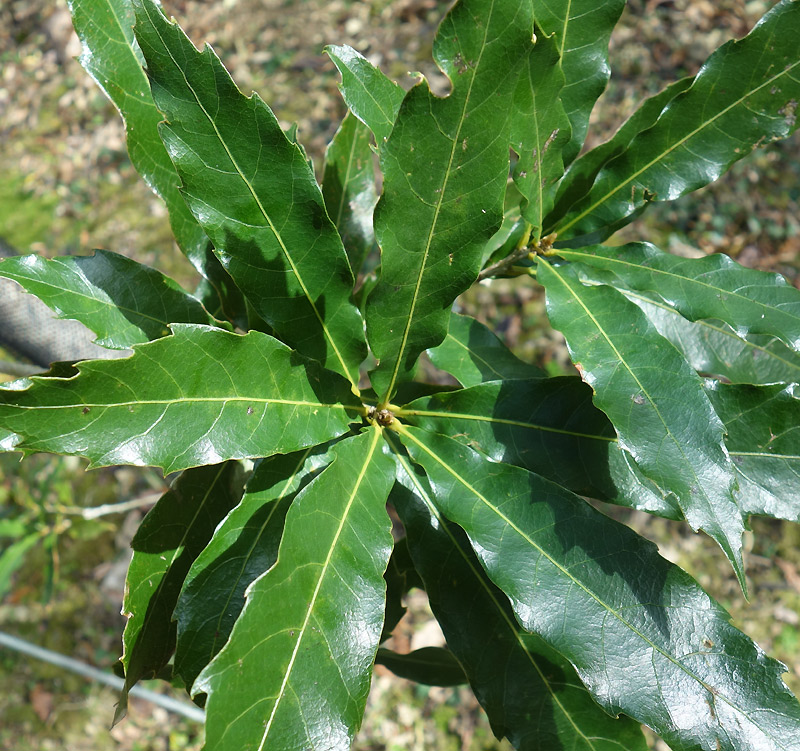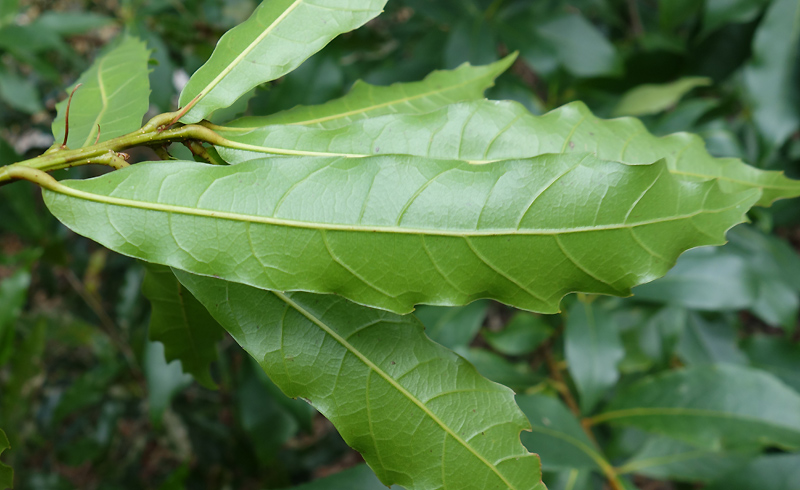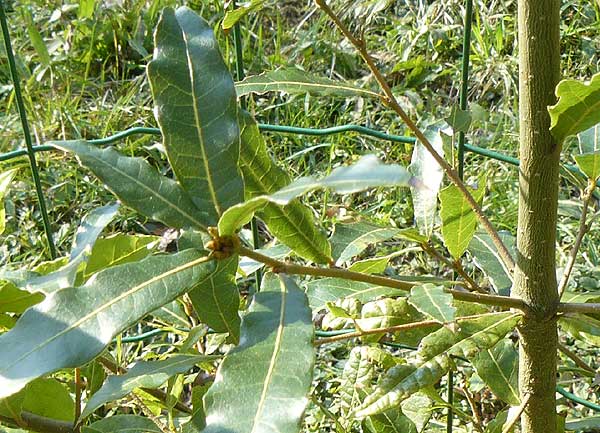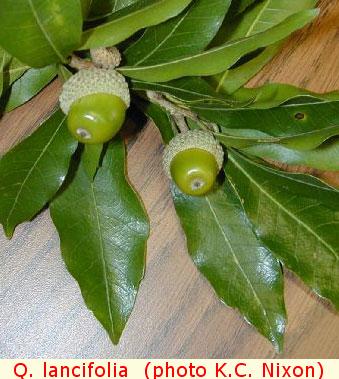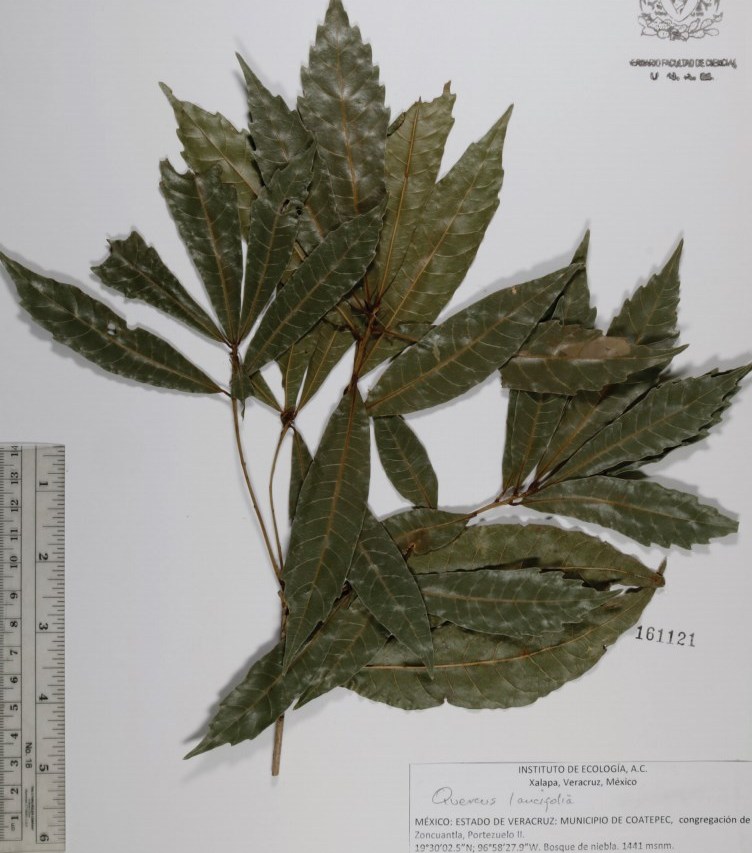| Quercus lancifolia | |
| Author | Schltdl. & Cham. 1830 Linnaea 5: 78, not Benth. 1840 |
| Synonyms |
lancifolia Liebm. ex A.DC 1864 |
| Local names | |
| Range | Mexico
(Veracruz, Chiapas, Hidalgo, Oaxaca, Puebla); Guatemala,; 700 - 2400 m;
|
| Growth habit | 4-20
(-30) m, with a trunk 30-50 cm and more in diameter; |
| Leaves | 7-15
x 3-6 cm; mostly oblanceolate, to elliptic, seldom oblong; leathery; apex
broadly acuminate, mucronate or not; base cuneate or sometimes rounded;
margin slightly thickened, flat or remotely revolute, cartilaginous, crenate
or serrate-dentate in apical 1/3 or 1/2, with 3-7 pairs of mucronate teeth
sometimes curved towards foliar apex, mucronate or not; both sides glossy
; adaxially green or grey-green to yellowish-green, lustrous, glabrous
or with some slender, 2-rayed fasciculate, appressed hairs along midvein
or at least toward the base; lower face identical to upper one; 10-13
vein pairs, rather straight, prominent on both surfaces; epidermis smooth,
not pruinose; petiole hairless or not, 3-8 mm long; |
| Flowers | |
| Fruits | acorn
2-4 cm long, 1.3-2 cm in diameter; mucronate; pale brown; 1-2 on short
peduncle at the apex of the shoots; enclosed 1/3 to 1/2 by cup; cup halfround
or shallower, 2.5 cm in diameter, with tuberculate, not basally thickened
scales, and straight rim; maturing in 1 year; |
|
Bark, twigs and |
bark almost smooth, light brown or whitish, peeling into thin, flat scales; twigs 1-2.5 mm thick, variably pilose; pale grey lenticels; buds hairless or not, subglobose, 2-3,5 mm long; stipules 4-7 mm long, silky, variably persistent; |
| Hardiness zone, habitat | not
quite hardy (zone 9). |
| Miscellaneous | --
A. Camus : n° 292 ; -- Sub-genus Quercus, Section Quercus, Series Leucomexicanae; -- Q. lancifolia Benth. (nom. illeg.) = Q. affinis -- Hybridizes with Q.bumelioides and Q.insignis; |
| Subspecies and varieties |
|
| Pictures |
More pictures HERE
|
